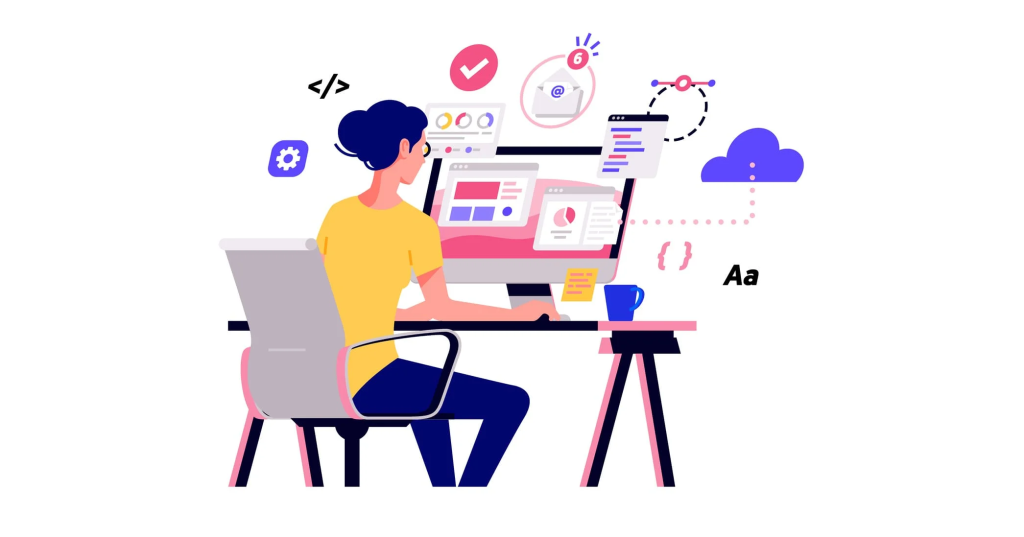VoIP (Voice over Internet Protocol) has revolutionized communication in the legal industry, offering law firms advanced features and flexibility that traditional analog phone systems cannot match.
This technology converts voice into a digital signal and sends it over the internet, eliminating the need for physical phone lines. VoIP provides numerous benefits for legal practices, including cost savings, increased mobility, improved call quality, and seamless integration with other business applications.
Law firms can leverage VoIP through SIP-compatible desk phones or VoIP calling apps, allowing for high-definition (HD) phone calls with clients and colleagues. Additionally, businesses with existing PBX phone systems can utilize VoIP through SIP trunking without the need to replace their entire infrastructure.
VoIP also supports remote work, ensuring legal professionals can stay connected and accessible at all times. Advanced features like auto attendant, call queues, and voicemail-to-email further enhance efficiency and client communication.
However, it’s important to note that in areas with poor internet connectivity or for compatibility with certain devices like fax machines and credit card machines, analog phone systems may still be preferred.
Overall, VoIP is revolutionizing the legal practice by providing advanced features and flexibility that allow law firms to streamline their communications, improve productivity, and deliver exceptional client service.
Key Takeaways:
- VoIP offers advanced features and flexibility for law firms.
- It converts voice into a digital signal and sends it over the internet.
- VoIP provides cost savings, increased mobility, and improved call quality.
- Integration with other business applications enhances productivity.
- VoIP supports remote work and offers advanced phone features for efficient client communication.
The Benefits of VoIP for Lawyers
Implementing VoIP in a law firm brings numerous benefits for legal professionals, including cost savings, enhanced mobility, and improved call quality. VoIP, or Voice over Internet Protocol, allows phone calls to be made over the internet instead of traditional phone lines. This technology has revolutionized communication in the legal industry, providing advanced features and flexibility that enhance the efficiency and productivity of legal practices.
One of the primary advantages of using VoIP is the cost savings it offers. Traditional phone systems can be expensive to install and maintain, with high monthly bills for long-distance and international calls. With VoIP, these costs are significantly reduced, as calls are transmitted over the internet, eliminating the need for costly phone lines. This makes VoIP an ideal solution for law firms looking to streamline their communication expenses.
Enhanced mobility is another key benefit of VoIP for lawyers. With VoIP, legal professionals can make and receive calls from anywhere with an internet connection, using their desk phones or VoIP calling apps on their mobile devices. This allows lawyers to stay connected and accessible to clients and colleagues, even when they are out of the office. The flexibility to work remotely and still have seamless communication is invaluable in today’s fast-paced legal environment.
VoIP also offers improved call quality compared to traditional phone systems. By converting voice into a digital signal and transmitting it over the internet, VoIP ensures clear and reliable connections, eliminating the static and interference often experienced with analog phones. This ensures that lawyers can have crystal-clear conversations with clients, colleagues, and opposing counsel, promoting effective communication and professional representation.
| Benefits of VoIP for Lawyers |
|---|
| Cost savings |
| Enhanced mobility |
| Improved call quality |
Quote
VoIP has transformed the way we communicate in the legal industry. The cost savings, mobility, and improved call quality provided by VoIP enable lawyers to stay connected and deliver quality service to their clients effectively.
Implementing VoIP in a law firm opens up a world of possibilities for legal professionals. With its advanced features and flexibility, VoIP is revolutionizing the way lawyers communicate, collaborate, and represent their clients. Whether it’s cost savings, enhanced mobility, or improved call quality, VoIP brings undeniable benefits to the legal practice.

Legal firms can leverage cloud-based VoIP solutions to enhance their communication systems, with a wide range of services tailored specifically for the legal industry. VoIP, or Voice over Internet Protocol, enables phone calls to be made over the internet instead of traditional phone lines, offering a more flexible and advanced solution for legal practices.
With VoIP, voice signals are converted into digital data that can be transmitted using internet protocols. This digital data is sent over the internet, allowing users to make and receive calls from anywhere with a stable internet connection. Cloud-based VoIP solutions provide law firms with the necessary infrastructure to support their communication needs, offering features such as call forwarding, conference calling, and voicemail-to-email transcription.
One of the key benefits of VoIP for legal practices is its integration capabilities. VoIP services can be easily integrated with other business applications, such as customer relationship management (CRM) systems and document management platforms. This integration streamlines workflows and enhances productivity by enabling automated call logging, client information retrieval, and seamless document sharing.

Additionally, VoIP offers a range of services specifically designed for the legal industry. These services include call recording for documentation and compliance purposes, as well as call analytics to assess call quality and performance. Law firms can also benefit from features like call queuing, which ensures that incoming calls are efficiently managed, and auto attendant, which handles call routing and provides clients with a professional phone experience.
Advanced Phone Features for Law Firms
VoIP enables law firms to access advanced phone features like auto attendant, call queues, and voicemail-to-email, enhancing their communication capabilities and streamlining their workflow. These features provide a range of benefits that improve efficiency and client satisfaction.
An auto attendant feature acts as a virtual receptionist, directing incoming calls to the appropriate department or individual. This eliminates the need for a dedicated receptionist and ensures that callers are quickly connected to the right person. With call queues, law firms can efficiently manage incoming calls during peak periods. Callers are placed on hold and are informed of their position in the queue, reducing frustration and maintaining professionalism.
The voicemail-to-email feature is a powerful tool that allows attorneys to receive voicemail messages directly in their email inbox. This feature ensures that important messages are never missed and provides a convenient way to keep track of client communications. Attorneys can listen to voicemail messages on their computer or smartphone, even when they are away from the office.
| Advanced Phone Features for Law Firms | Benefits |
|---|---|
| Auto Attendant | Efficient call routing, eliminates need for receptionist |
| Call Queues | Manage incoming calls during peak periods |
| Voicemail-to-Email | Receive voicemail messages in email inbox |
These advanced features offered by VoIP technology are essential for modern law firms. They increase productivity, improve client communication, and ultimately contribute to the success of the firm. By integrating these features into their telephony system, law firms can enhance their professional image and provide a seamless calling experience for their clients.
High-Definition Phone Calls for Clarity and Precision

Attorneys can enjoy crystal-clear and precise phone conversations with clients and colleagues using VoIP’s high-definition (HD) phone call technology. By leveraging the power of the internet, VoIP ensures that every word is crystal clear, allowing for accurate and efficient communication in the legal profession. With HD phone calls, lawyers can confidently discuss legal matters with clients and colleagues, ensuring that no crucial details are lost in translation.
In addition to exceptional audio quality, HD phone calls also provide enhanced clarity, allowing attorneys to hear every nuance and inflection in their conversations. This level of precision is crucial in the legal field, where even the slightest misunderstanding or miscommunication can have significant consequences. Whether negotiating a settlement, presenting evidence in court, or conducting a conference call, HD phone calls help attorneys convey their messages with the utmost clarity and precision.
Furthermore, the use of HD phone calls can enhance client satisfaction. Clear and precise communication builds trust and confidence, reassuring clients that their attorney understands their needs and is committed to providing top-notch legal representation. By utilizing VoIP’s high-definition phone call technology, attorneys can create a professional and collaborative atmosphere, fostering stronger relationships with their clients.
| Benefits of HD Phone Calls for Attorneys: |
|---|
| 1. Crystal-clear audio quality for accurate communication |
| 2. Enhanced clarity to capture important details |
| 3. Improved client satisfaction and trust |
VoIP’s high-definition phone call technology is a game-changer for attorneys, revolutionizing the way they communicate and collaborate. With its exceptional audio quality, enhanced clarity, and capability to foster stronger client relationships, HD phone calls empower legal professionals to excel in their practice.

VoIP’s integration capabilities extend beyond phone calls, allowing legal professionals to seamlessly connect their communication systems with essential business applications like CRM and document management platforms. This integration empowers law firms to streamline their workflows, improve productivity, and enhance client communication.
By integrating VoIP with CRM systems, legal professionals can easily access important client information, track communication history, and manage appointments and deadlines. This ensures that lawyers have all the necessary data at their fingertips, enabling them to provide personalized and efficient service to their clients.
VoIP also integrates effectively with document management platforms, allowing law firms to store, manage, and share documents securely. This enables easy collaboration between team members, enhances document version control, and simplifies the process of locating and retrieving important legal files.
Furthermore, VoIP’s integration capabilities extend to other essential business applications such as email clients, calendar systems, and customer support platforms. These integrations enable legal professionals to have a centralized hub for all their communication and business tools, reducing the need for manual data entry and improving overall efficiency.
| Benefits of VoIP Integration with Business Applications: |
|---|
| 1. Streamlined workflows and improved productivity |
| 2. Enhanced client communication and personalized service |
| 3. Access to important client information and communication history |
| 4. Secure document management and easy collaboration |
| 5. Simplified data entry and centralized communication hub |
SIP Trunking for Existing Phone Systems
Law firms can implement VoIP without a complete phone system overhaul by utilizing SIP trunking to connect their existing PBX systems to VoIP technology. SIP trunking acts as a bridge between traditional phone systems and the internet, enabling businesses to enjoy the benefits of VoIP without replacing their entire infrastructure.
By utilizing SIP trunking, law firms can take advantage of the advanced features and flexibility of VoIP while still using their existing PBX equipment. This allows for a smooth transition to VoIP, as firms can continue to use their familiar phone system while benefiting from the cost savings and improved call quality that VoIP offers.
Furthermore, SIP trunking provides scalability for law firms, allowing them to easily add or remove lines as needed without the limitations of physical phone lines. This flexibility ensures that businesses can adapt their phone system to meet their changing needs, whether it’s during periods of growth or downsizing.
| Benefits of SIP Trunking for Existing Phone Systems | Key Considerations |
|---|---|
|
|
In conclusion, SIP trunking offers a viable solution for law firms looking to implement VoIP without the need for a complete phone system overhaul. By leveraging their existing PBX equipment and connecting it to VoIP technology, businesses can enjoy the benefits of advanced features, scalability, and cost savings. When considering SIP trunking, it is essential to ensure compatibility with existing systems, have sufficient internet bandwidth, choose a reliable provider, and enlist the help of professionals for the implementation and configuration. With SIP trunking, law firms can embrace the digital transformation and reap the rewards of a more efficient and flexible communication system.
Remote Work and Mobility with VoIP

VoIP empowers legal professionals to work remotely and stay connected with clients and colleagues, offering flexibility and mobility in today’s fast-paced legal environment. With VoIP solutions for legal professionals, law office telephony becomes seamless and efficient, enabling attorneys to handle their caseloads from anywhere, at any time.
One of the key benefits of VoIP for remote work is its ability to support mobility. Legal professionals can use their desktop phones, mobile apps, or softphone applications to make and receive calls, ensuring that they are always accessible to clients. This flexibility allows attorneys to handle urgent matters while out of the office, attend virtual meetings, or collaborate with colleagues on case strategies.
Additionally, VoIP offers features like call forwarding, voicemail-to-email transcription, and presence indicators, which enhance communication and ensure that important calls are never missed. These features enable legal professionals to efficiently manage their calls and stay connected with their clients and colleagues, even when they are away from their desks or out of the office.
Table: VoIP Features for Remote Work and Mobility
| Feature | Description |
|---|---|
| Call Forwarding | Redirect calls to another phone number, ensuring that important calls are answered promptly. |
| Voicemail-to-Email Transcription | Receive voicemail messages as email transcriptions, making it easy to prioritize and respond to messages. |
| Presence Indicators | Show colleagues’ availability status, allowing for better communication and coordination. |
VoIP solutions for legal professionals provide the necessary tools for remote work and mobility, allowing attorneys to maintain productivity and provide excellent client service, even when working outside of the traditional office setting. With the flexibility and advanced features of VoIP, legal practices can embrace the digital transformation and enhance their efficiency and communication capabilities.
While VoIP offers numerous advantages, law firms need to consider specific factors like internet connectivity and compatibility with certain devices when deciding whether to transition from analog phone systems. In areas with poor internet connectivity or unreliable network connections, analog phone systems may provide more reliable communication options. Additionally, some devices like fax machines and credit card machines may not be compatible with VoIP technology, making it necessary to maintain analog lines for those specific purposes.
It is important for law firms to assess their current phone system and evaluate whether the benefits of VoIP outweigh the potential challenges. Conducting a thorough analysis of internet connectivity, network stability, and compatibility with essential devices is crucial in making an informed decision. Investing in a reliable internet connection and ensuring that essential devices are compatible with VoIP may be necessary steps for a successful transition.
Conclusion
In conclusion, VoIP offers law firms an innovative solution that revolutionizes their communication systems, delivering advanced features, increased flexibility, and significant efficiency benefits. By converting voice into a digital signal and transmitting it over the internet, VoIP eliminates the need for traditional phone lines and enables communication to take place anytime, anywhere.
One of the key advantages of VoIP for lawyers is the cost savings it provides. With VoIP, law firms can enjoy reduced costs for long-distance and international calls, as well as lower maintenance expenses compared to traditional phone systems. Additionally, VoIP offers increased mobility, allowing legal professionals to stay connected and accessible whether they are in the office, on the go, or working remotely.
Furthermore, VoIP ensures improved call quality, providing high-definition (HD) phone calls that enhance clarity and precision during conversations. This is especially crucial for attorneys when communicating with clients and colleagues, as clear and effective communication is paramount in the legal profession.
Moreover, VoIP integrates seamlessly with various business applications, such as customer relationship management (CRM) systems and document management platforms. This integration streamlines workflows, enhances productivity, and enables law firms to manage their communications more effectively.
While VoIP offers numerous benefits, it’s important to note that analog phone systems may still be preferred in areas with poor internet connectivity or for compatibility with specific devices like fax machines and credit card machines. However, as the technology continues to advance and internet connectivity improves, more law firms are embracing VoIP and experiencing the transformative impact it has on their practice.
Overall, VoIP is reshaping the legal industry by providing advanced features, flexibility, and cost-effective communication solutions. By leveraging VoIP technology, law firms can optimize their communication systems, improve client interactions, and stay ahead in the digital age.
FAQ
Q: What is VoIP?
A: VoIP stands for Voice over Internet Protocol and is a technology that allows phone calls to be made over the internet instead of traditional phone lines.
Q: How does VoIP work?
A: VoIP converts voice into a digital signal and sends it over the internet, eliminating the need for physical phone lines. It uses IP addresses to route calls and can be used with SIP-compatible desk phones or VoIP calling apps.
Q: What are the benefits of using VoIP for lawyers?
A: VoIP offers cost savings, increased mobility, improved call quality, and integration capabilities, which are advantageous for legal professionals in their daily communication and practice management.
Q: Can VoIP provide high-definition phone calls?
A: Yes, VoIP supports high-definition (HD) phone calls, providing clarity and precision in communication.
Q: How does VoIP integrate with other business applications?
A: VoIP can be integrated with customer relationship management (CRM) systems, document management platforms, and other business applications, streamlining workflows and enhancing productivity.
Q: Can law firms with existing phone systems utilize VoIP?
A: Yes, law firms with existing Private Branch Exchange (PBX) phone systems can utilize VoIP through SIP trunking, enabling them to enjoy the benefits of VoIP without replacing their entire infrastructure.
Q: Does VoIP support remote work and mobility?
A: Yes, VoIP supports remote work and provides mobility for legal professionals, allowing them to stay connected and accessible at all times.
Q: Are there any considerations for law firms using analog phone systems?
A: Law firms using analog phone systems should consider factors such as poor internet connectivity in certain areas or compatibility issues with devices like fax machines and credit card machines.
Q: How can law firms transition to a VoIP system?
A: Law firms can transition to a VoIP system by selecting the right VoIP provider, planning for implementation, and training staff on the new technology.
Q: What are the future trends and innovations in VoIP for lawyers?
A: Future trends in VoIP for lawyers may include artificial intelligence, virtual receptionists, and enhanced security features, which could further enhance the legal practice.



